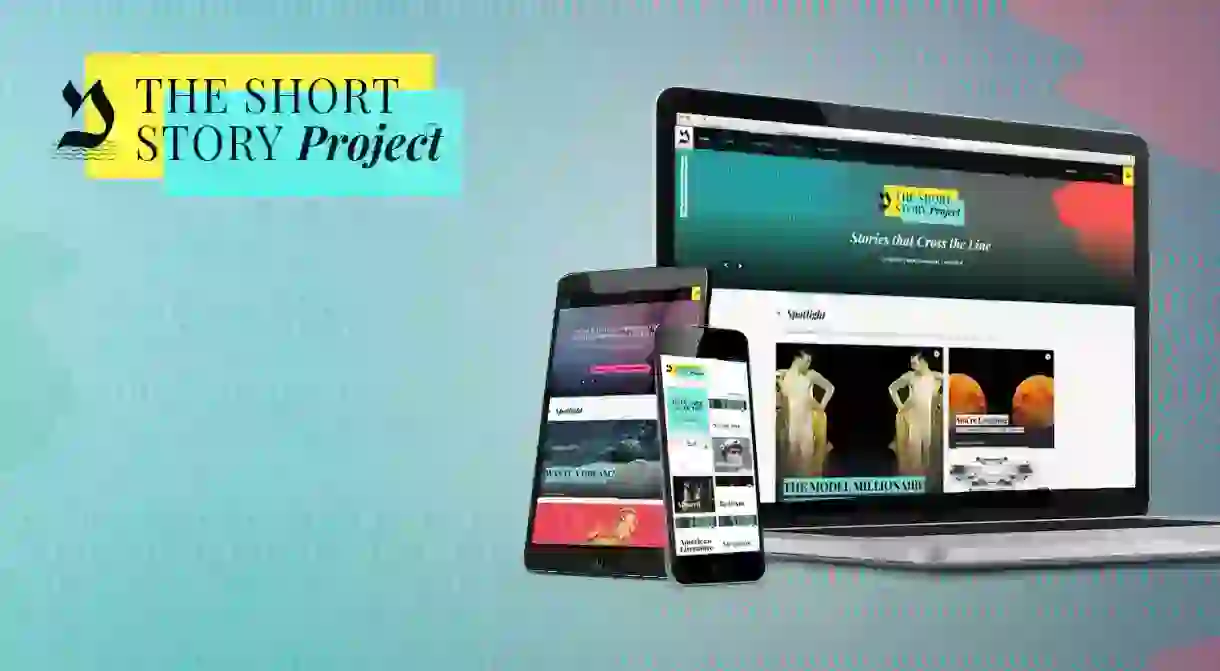How the Short Story Project is Changing the Way We Read Fiction Online

We spoke with the editorial director and founder Iftach Alony about how the project came about and what guides its vision.

The rule of thumb has long been that reading fiction online will always pale to reading fiction in a book. But some rules beg to be challenged, and not surprisingly, one group has taken up the cause of rethinking how we can experience fiction online. The Short Story Project, founded in 2014 by Israeli writer and producer Iftach Alony, has made it its mission to innovate and update world literature for an audience that prefers screens to pages. The SSP now staffs eight people and has published, since its inception, nearly hundreds of authors writing in nearly 30 languages.
To enhance its reading experience, the SSP curates the material on its site (currently it’s women in fiction), commissions introductions for stories both contemporary and classic, pairs each story with original artwork, and hosts a series of audio readings as supplements to its library of fiction. As a non-profit organization, the SSP depends on donations to keep it running and encourages its readers to officially join its community to receive notices, access to exclusive material, and customized recommended reads.
Over an email exchange, Alony told us about the project’s beginnings and its ongoing mission to innovate the promotion of literature.
What was the impetus of the Short Story Project? What inspired it?
The first person who ignited my love for short stories was a Bedouin shepherd named Samir, who would herd his sheep near my Kibbutz’s fields. I was five and the Kibbutz was in a remote desert place, so his stories would gave wings to my small body—they made me feel like i was flying, crossing the desert, geographies, realities… From then on I was addicted to short literature. I guess this was the impetus; and also my belief that short literature can act as a sort of “channeling machine” with which one can transport themselves between cultures and geographies and become familiar with the other and the human condition.
The project’s essential idea is to offer short, non-commercial literature. Another important aspect of the project, is strengthening relations between writers, translators, and readers. Much like “no paper” schools are becoming more popular, we also believe that the digital world will come to dominate reading habits. So we think that if our goal is to encourage reading, we must be online, in the digital world, utilizing all of its fascinating potential.

How would you describe the aesthetic for the kinds of short stories you publish?
“Aesthetic”… I think this term alludes to different direction than the one we’re taking currently. In other words, I would say that we don’t “publish” stories, but rather to explore and curate them. We are a digital space for short fiction, chosen by different editors. There is no single “aesthetic” guideline, but if I have to give an answer, then I would like to think that any story we add to our collection encourages the reader to explore, and sets them off to a journey, even if a limited one, into other spheres of feelings and thinking. I believe reading expands the ability to think critically about the vast information being thrown at us; it sharpens the senses and can allow one to recognize when words are being used as manipulation.
How do you come to choose the literary people who introduce these stories?
Naturally, we first approached the “usual suspects”: our fellows editors, translators, and writers. But as we grew—currently we have 100,000 readers a month—we started getting more suggestions from our readers, and we find that inspiring. I think this project is becoming a network which combines readers, writers, editors and academics, and these diverse voices will allow us to discover more short literature from different languages and cultures.
We currently have in-house editors in different parts of the world specializing in different fields of short fiction: Maya Feldman, our senior editor is based in Berlin; Adam Blumenthal in Madrid handles literature from the Spanish-speaking world. There’s Simon Lörsch who is also in Berlin and specializes in German lit; Olga Sonkin in Tel Aviv handles children’s literature, and of course, myself also in Tel Aviv. Having people in these very different locales allow us to connect with a diverse group of people who love short literature, and are happy to contribute to the project.
How has the vision of the project changed since you founded it?
I think the core idea, that reading is an essential activity toward developing empathy and compassion for others, hasn’t changed. But during the past two years we’ve had the chance to explore and further understand the potential of the digital world, especially its abilities to create a new relationships between text and image. We’ve as well come to realize the significance of translation, as a web project—the instant access to texts and the breaking of language barriers, something which totally differs from the traditional print establishment. No doubt that translation, (i.e., being a multilingual hub), enables the texts to cross all territories and geographies, making the project more vibrant, transforming ideas and situations from the local to the global.

As a “project” do you have an ultimate goal that you are working to achieve?
I think the idea of encouraging empathy through reading is an infinite project. But in the future we hope to achieve various goals, among them obvious ones like expanding our audience, building the project as social network between readers and writers, and growing the content and digital features of our library. In my view, our lives and culture (any culture) are becoming more and more fluid, and so the project should be about exploring this potential and finding ways to connect people through the art of short literature, encouraging them to observe and scrutinize their immediate surroundings and the world at large.













